
| John
Taylor at the Men's Health Challenge: alcohol, mental health
and suicide |

| |
Whilst
in London I had the pleasure to attend the "Joint-Meeting
of All Party Parliamentary Group on Alcohol Misuse, Men's
Health and Samaritans" where John Taylor did a a heartfelt
introduction talking about his experience in alcohol and drugs
addiction and his his deep belief in the 12-step program.
The conference took place at the Wilson Room, Porticullis
House, part of the UK Parliament, on June 12th at 3.30 pm.
I went there with my Argentinian friends and long time fans,
Fabiana, Gerardo and Daniel.
The entry was free and does not have to be arranged in advance.
Sessions and conferences are often held in public and a limited
number of seats are available to the public on a first come
first served basis... so we got inside and sat just in front
of John who blinked at me as soon as he reconized me. How
nice!
Below a transcription of his 7 minutes long speech which was
warmly applauded by Tracey Crouch MP[Chair
of the All Parliamentary Group on Alcohol Misuse - in the
above pic she's in the center], Norman Lamb MP
[Minister of State for Care abd Support], Dr Richard
de Visser [school of Psychology, University of Sussex],
Mr David Wilkins [Men's Health Forum], Dr
Amy Chandler [Centre for Research on Families and
Relationships, University of Edinburgh], and of course by
everyone in the room, including us.
Transcription
of John Taylor's speech by Salvo
Hi Everybody,
I’m an alcoholic, and a drug addict. I could not control
my use of alcohol or drugs and my using caused me to behave
in ways I never would have done had I been sober. Eighteen
years ago I checked into a rehab facility and I spent 30 days
there; it turned my life around. Based on this experience,
I believe in rehab.
I believe in the turn around that is possible through rehab.
A life that is spiralling and out of control
can remain useful and successful, once you are living drug
and alcohol free. It was in rehab that I was first introduced
to the 12-step program of the Alcoholics Anonymous.
[I don’t usually read from paper, but I’m
afraid I have to do that today, so bear with me.]
|
| 
|
Alcoholism
is a disease that is also a spiritual malady, I believe it’s
a form of genetic defect.
Why some of us can stop after one and some of us can’t
after twenty. Whether that is fact or not is unimportant,
what is important is believing in the idea. It lets everyone
off the hook. One thing everyone and everything you have ever
blamed for your life problems, and that’s a big deal.
Most of us could wind up in 12-step programs out there because
our lives aren’t working. Or more often life is crashing
down around us. Out of work and unemployable and family hardly
on speaking terms before help. That’s the perfect state
to enter a 12-step program. It’s called a gift of desperation.
And here’s another thing about alcoholism, it’s
an equal opportunity loss. It will bring down lawyers and
footballer, veterans and factory workers, rich or poor. It
recognizes not ethnicity, nor age... By the way, I still don’t
know which partner she works for. But that is so irrelevant
in this subject.
But getting to that place of acknowledgment, “I have
a problem with alcohol, I have a problem with drugs.”
Once there, I was ready to be helped. It was all right for
me, I could write the check.
But that’s not the case for the majority of people in
this country who want help now.
If the Government can step in and help more people over the
line and into treatment, that help will be the greatest gift
that can be given that person. Because if that person stays
sober, and it is a an if, [I acknowledge that not everyone
stays clean who enters rehab but many do], and that person
will be giving back to the community the rest of his life,
they become the ideal citizens we are so badly needing. >>
|
| The
psychology, the education of knowing
who we are and why we do what we do,
as part of the 12-step treatment plan,
apparently on offer in this country only to the few,
is an extraordinary one, and one day
I would love to see it being offered to all who need it. |
|
| 
Group
photo, suggested by John
from left: Salvo, Fabiana, John, Daniel and Gerardo |
|
>>
How to help get them there? A nationwide program to inform
or to appease with the success rate of the 12-step program.
That this should be the treatment of choice for the problems
consistent of drug users. This has been mentioned and is a
good idea. More young offenders could be off of drug and alcohol
treatment instead of prison. Drug courts have proven successful
in west London and the United States.
Careers in drug and alcohol counselling should be encouraged.
There are already great courses available at the University.
Many ex-drug addicts and alcoholics return to a career in
counselling. But most people currently considering a degree
in counselling would not be there for the loan. This is a
late life commitment.
But this is not a job for any inexperienced 18-year old, who
won’t be able to have resources to turn to this line
of work and for now to enrol into two years of study and an
expensive loan. Perhaps funding could be found in scholarships
which the government could then match.
In my case 30 days of residential treatment facility was enough
but many of us need more. And it is significant to recognize
that in order to maintain abstinence you must follow the rehab
treatment with an ongoing peer support program, commonly known
as “working the 12 steps,” upon leaving the facility.
An alcoholic or a drug addict’s recovery is never over.
And he or she are never completely recovered just because
they have completed rehab.
According to the proven formula for the 12-step programs for
drugs and alcohol, abstinence must be practiced one day at
the time, without ever picking up that first drink or drug.
And this can only become a success story, as far as I know,
with ongoing peer support, the meetings and the sponsoring,
the mentioned aspects of the 12-step program.
Residential treatment is neither free nor cheap, and after-care
as it exists within the hospital community is free. Whatever
the cost to put an individual through the residential treatment;
I believe its expenses will prove to be worthwhile.
Cheap compared to the expenses supporting someone with lifelong
addiction and alcohol problems, who is draining the NHS with
continued health issues; policing, court, and prison for crime
and family violence.
Evidence suggests that the greater number of individuals going
sober in 12-step programs are able to earn a profitable charge.
And as members of their community offer themselves in service
to other addicts and alcoholics who have less time than they
do. They give back in order to maintain their own abstinence,
therefore helping the system that helped them.
Rehab is not always necessary, AA [Alcoholics Anonymous] gets
the greater numbers of its members directly in off the streets,
but more and more I hear gratitude from people who say without
getting to rehab, if only for 30 days, they would not be alive
today let alone be a functional, thriving, useful member of
society. >>
|
| If
the Government can step in and help more people over
the line and into treatment, that help will be the greatest
gift that can be given that person.
Because if that person stays sober, that person will be giving
back to the community the rest of his life,
they become the ideal citizens we are so badly needing. |
|
| 
|
>>
When a person with a serious problem needs to be
taken out of circulation and once is ready to get away from
the home, and the clubs and the supermarkets, and all the
local triggers, rehab is the best option.
Today more rehabs are closing than are opening. Only about
2% of problem drug users in the system are allowed to go into
rehab. Over one billion pounds is spent on combating drugs
each year, only 2-3% of that is spent on rehab.
Rather
than rehabs being forced to close they should be expanding
services including development, and specialists in residential
facilities for young people.
Anyone who has the wherewithal to understand and accept their
problem for what it is, that they have a problem with alcohol
or drugs that they cannot stop by themselves, should be encouraged
to get help; that is treatment and the government should be
prepared to help make that happen.
My thought is that this is a similar situation to the world
of our education, which was once a privilege available only
to the few. After the War, we realized that every member of
our society is important as the other and a plan was put in
place for this change to rise to the greater good.
The psychology, the education of knowing who we are and why
we do what we do, as part of the 12-step treatment plan, apparently
on offer in this country only to the few, is an extraordinary
one, and one day I would love to see it being offered to all
who need it.
Thank you.
|

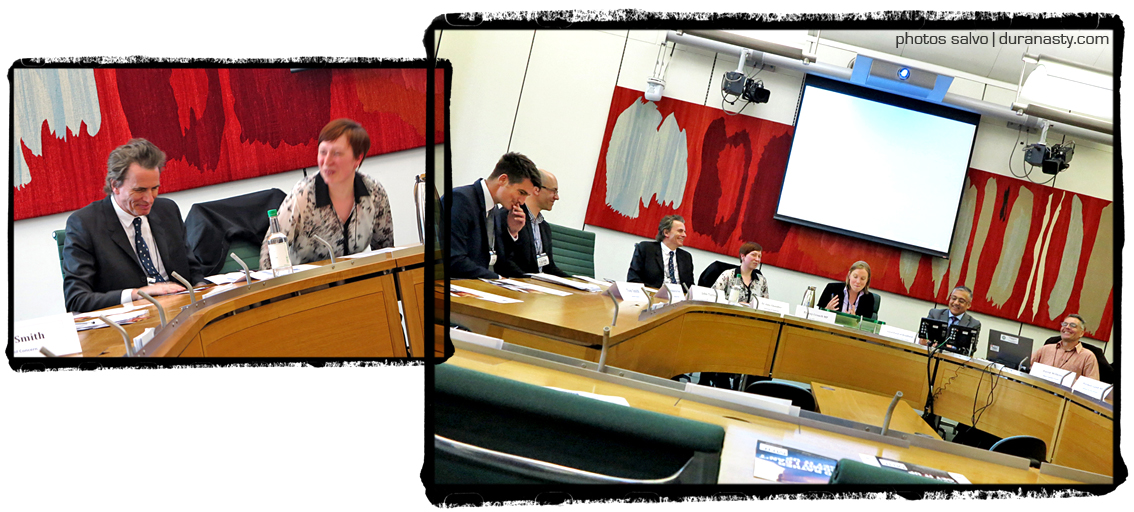
Everybody
laughs because Tracey Crouch, by mistake, introduces John as
the former member of Duran Duran... |
|

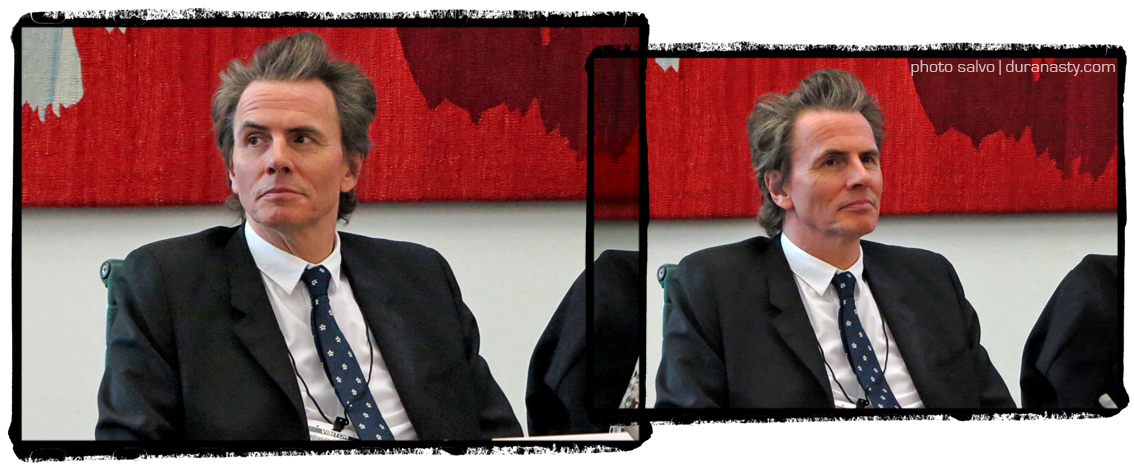
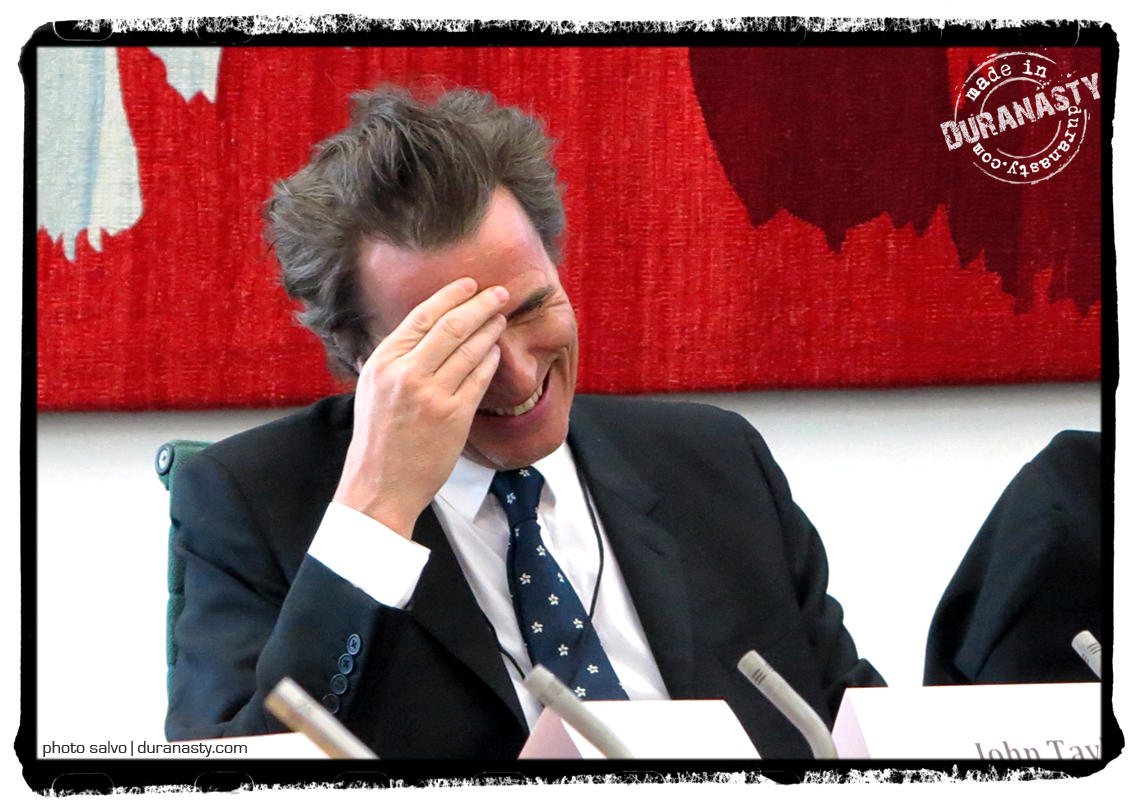
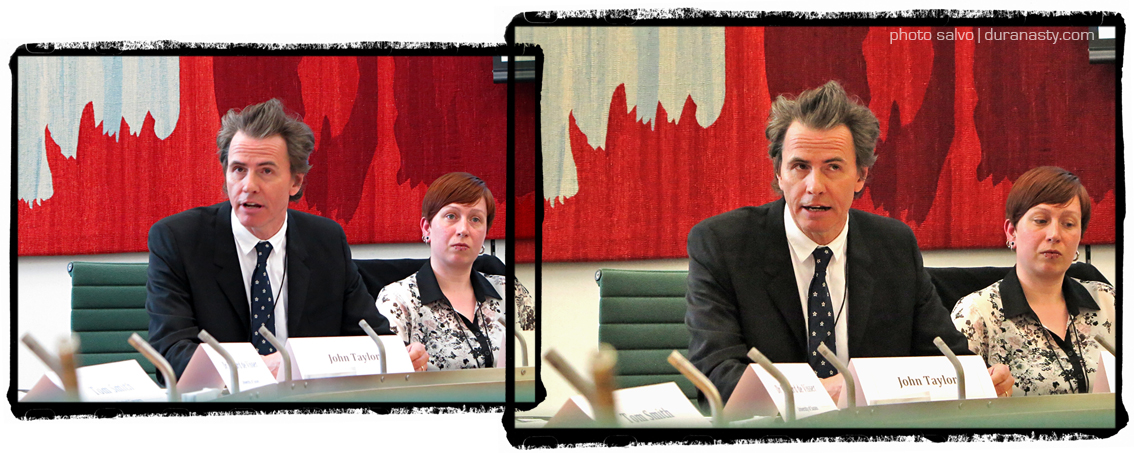
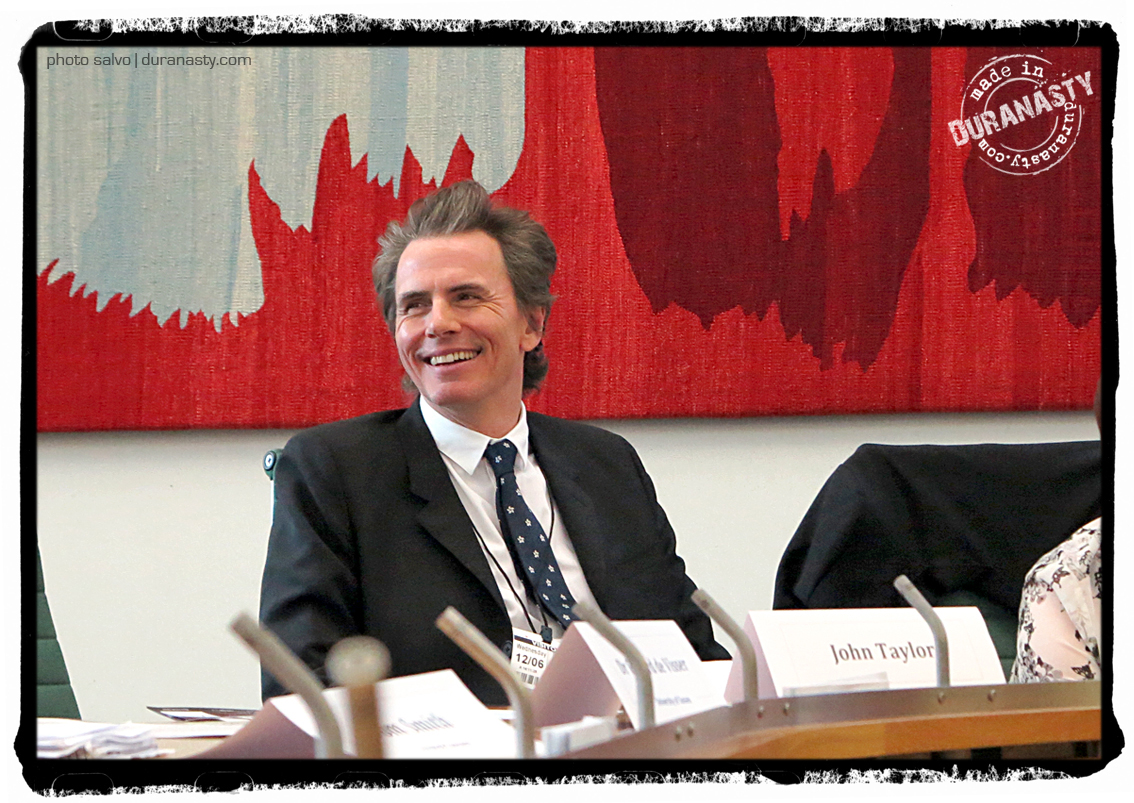
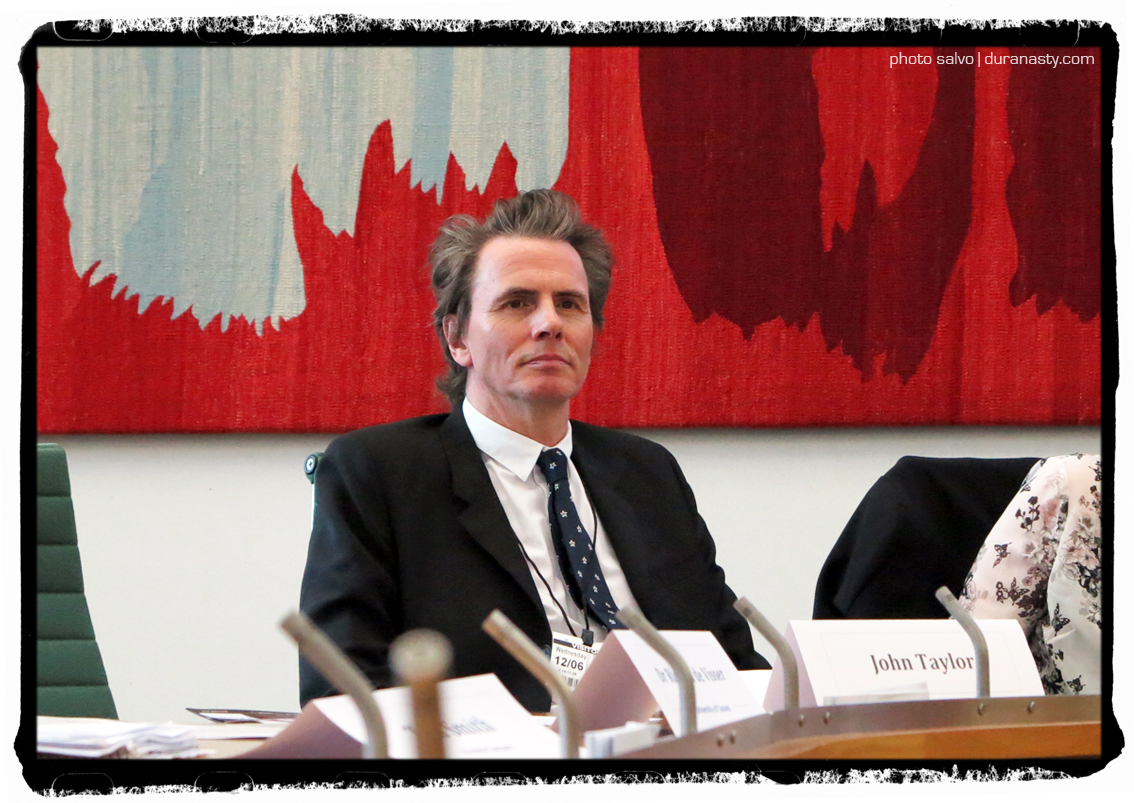
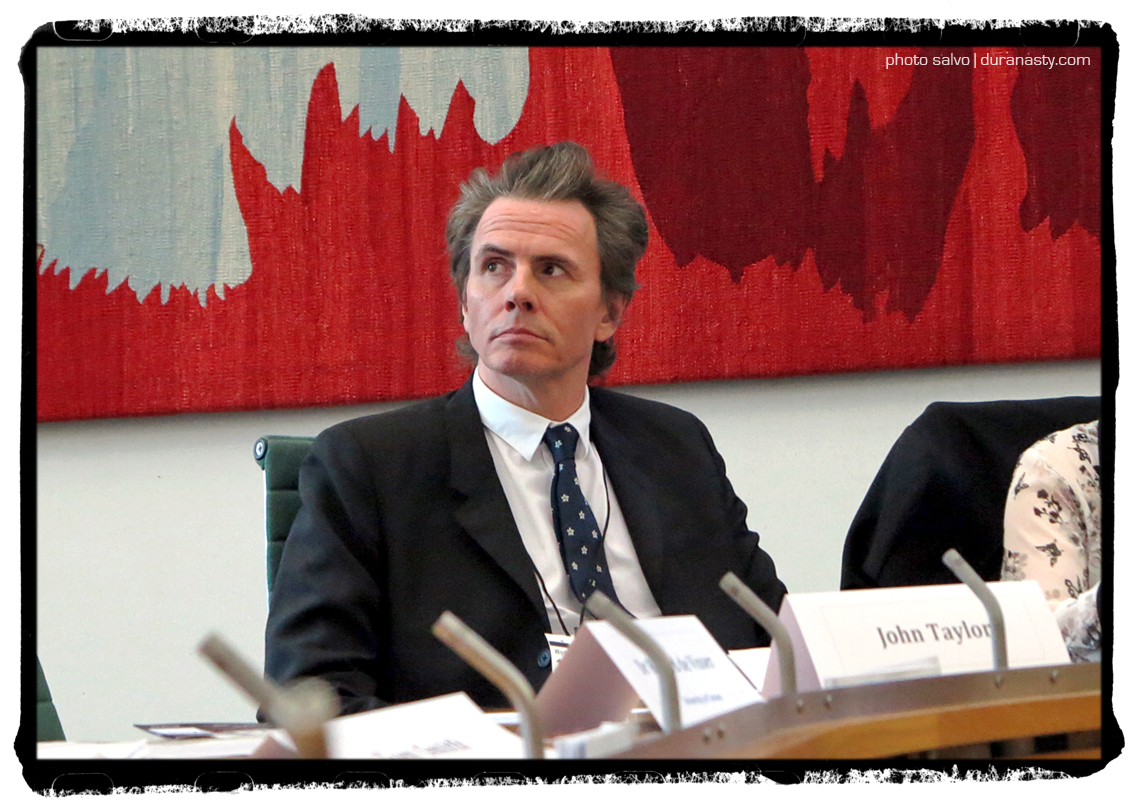
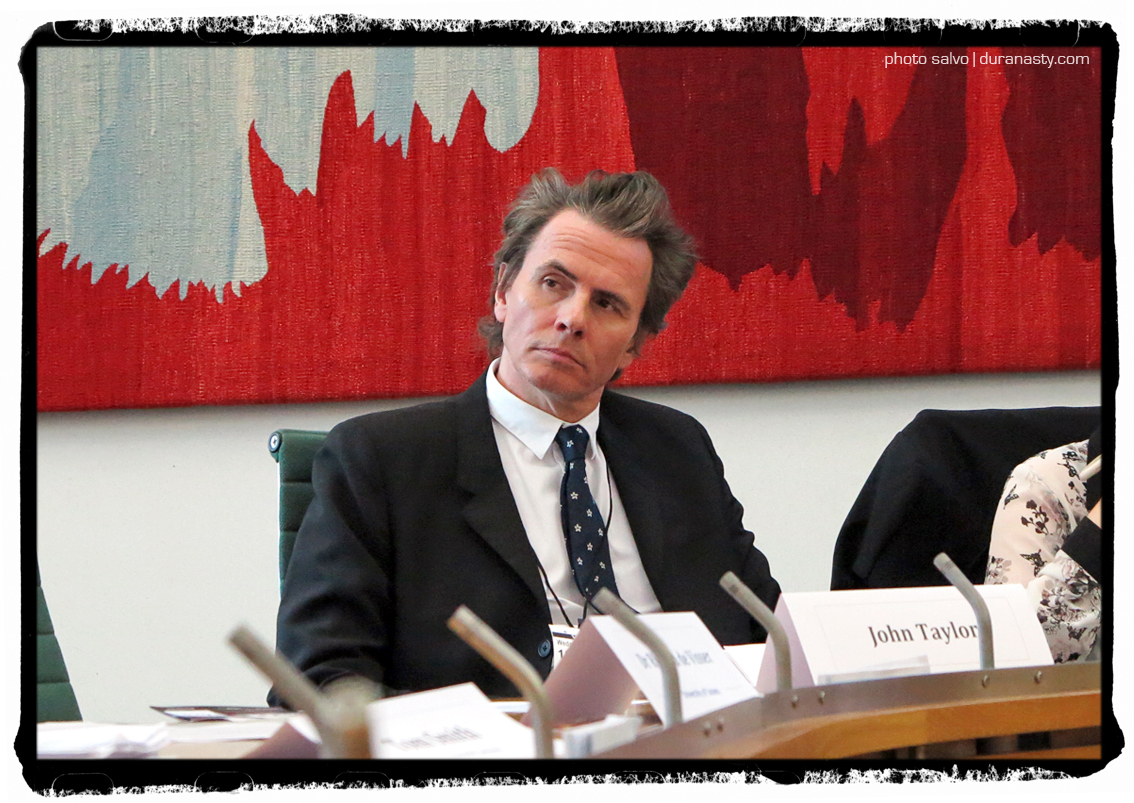
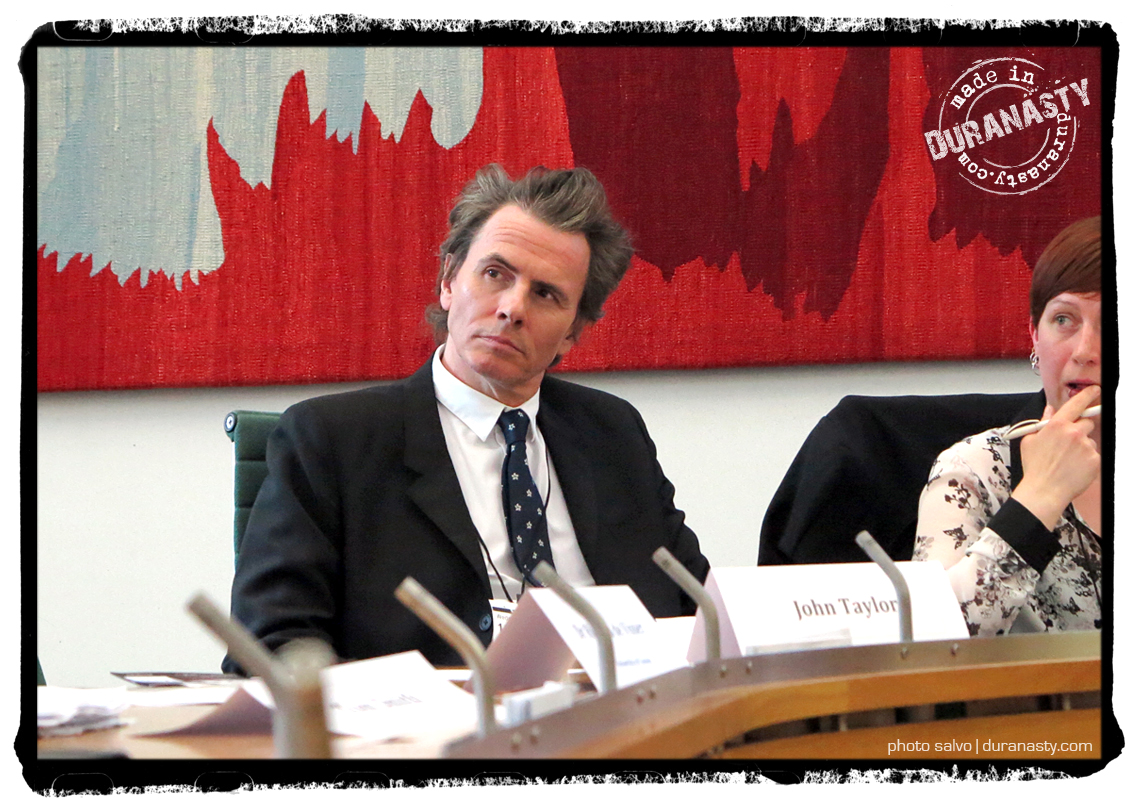
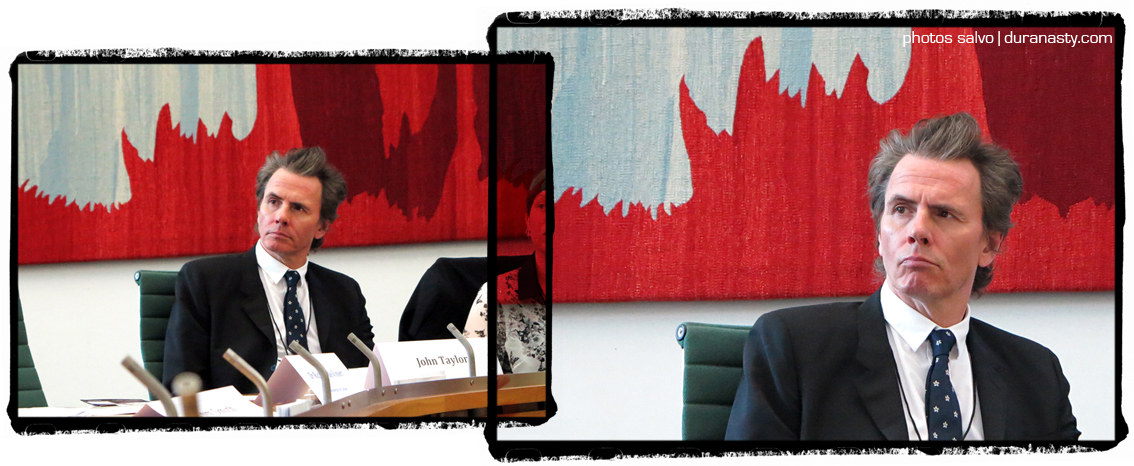
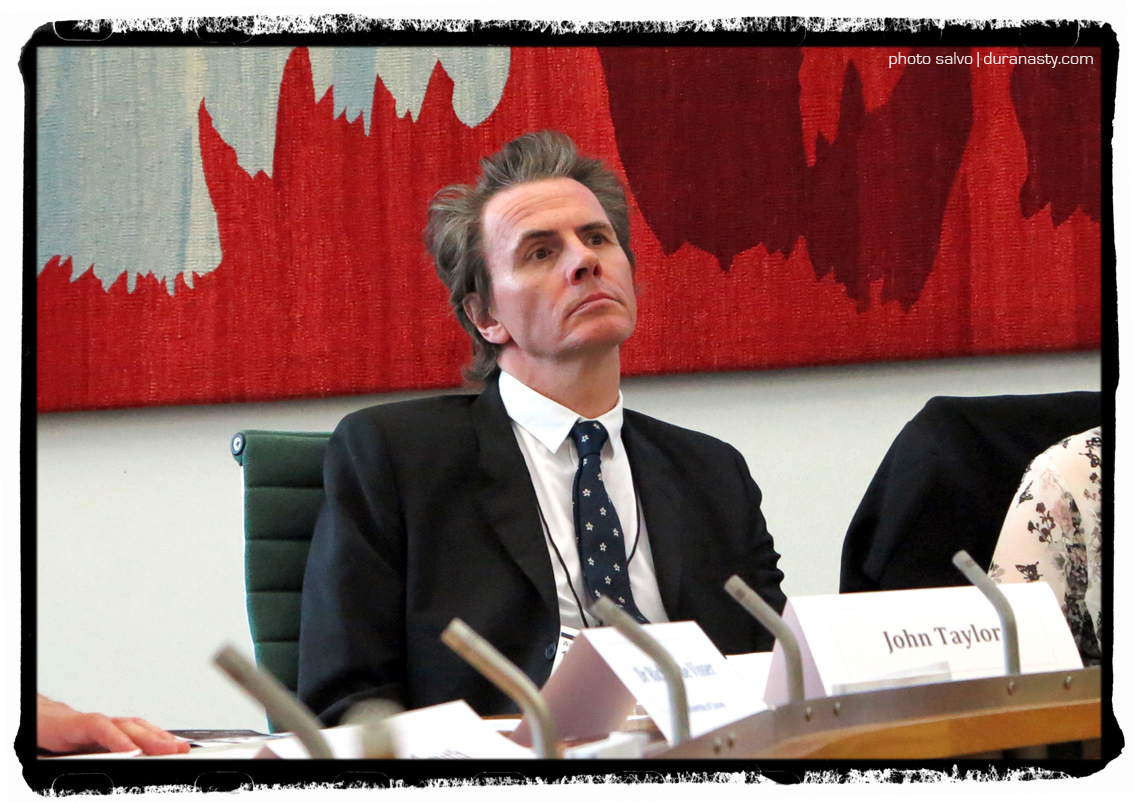
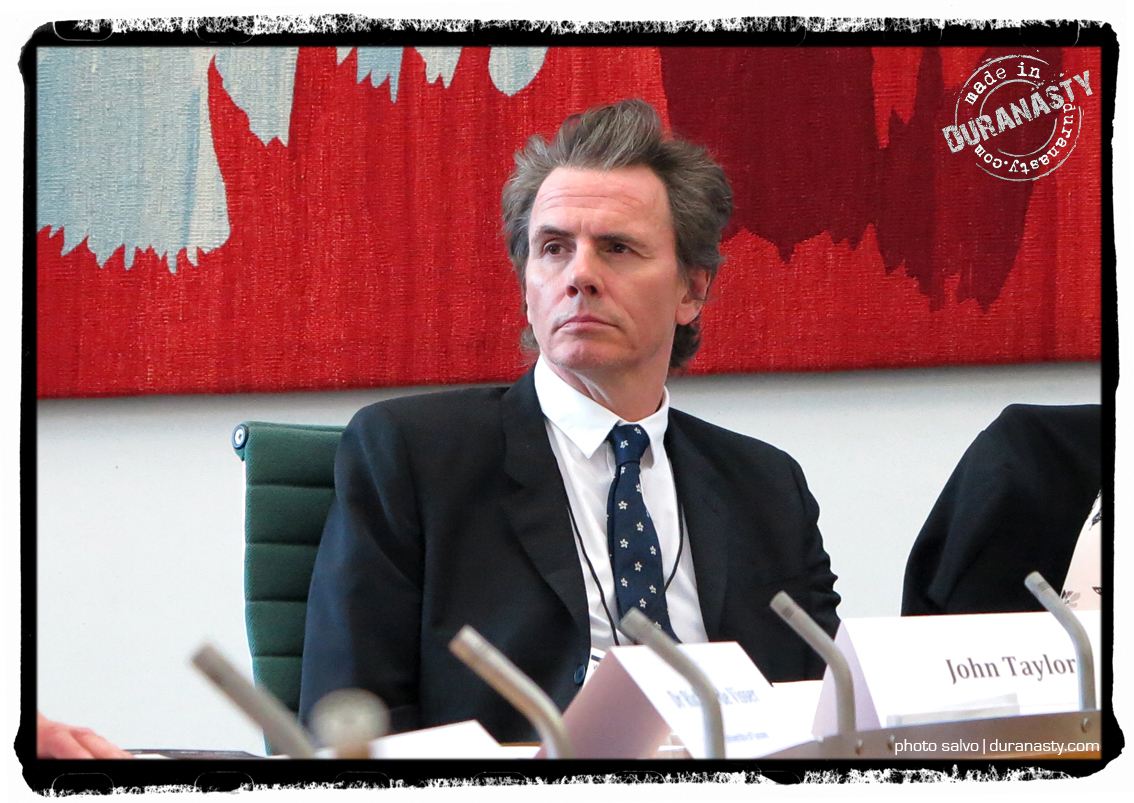

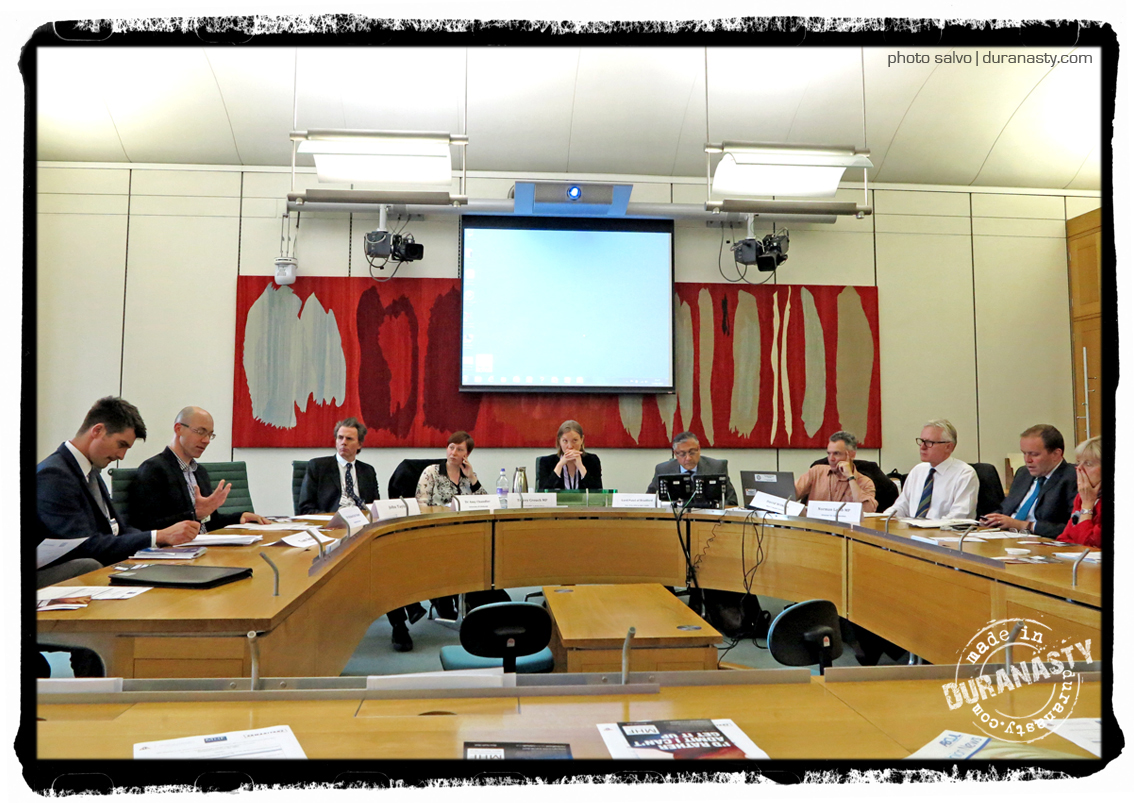
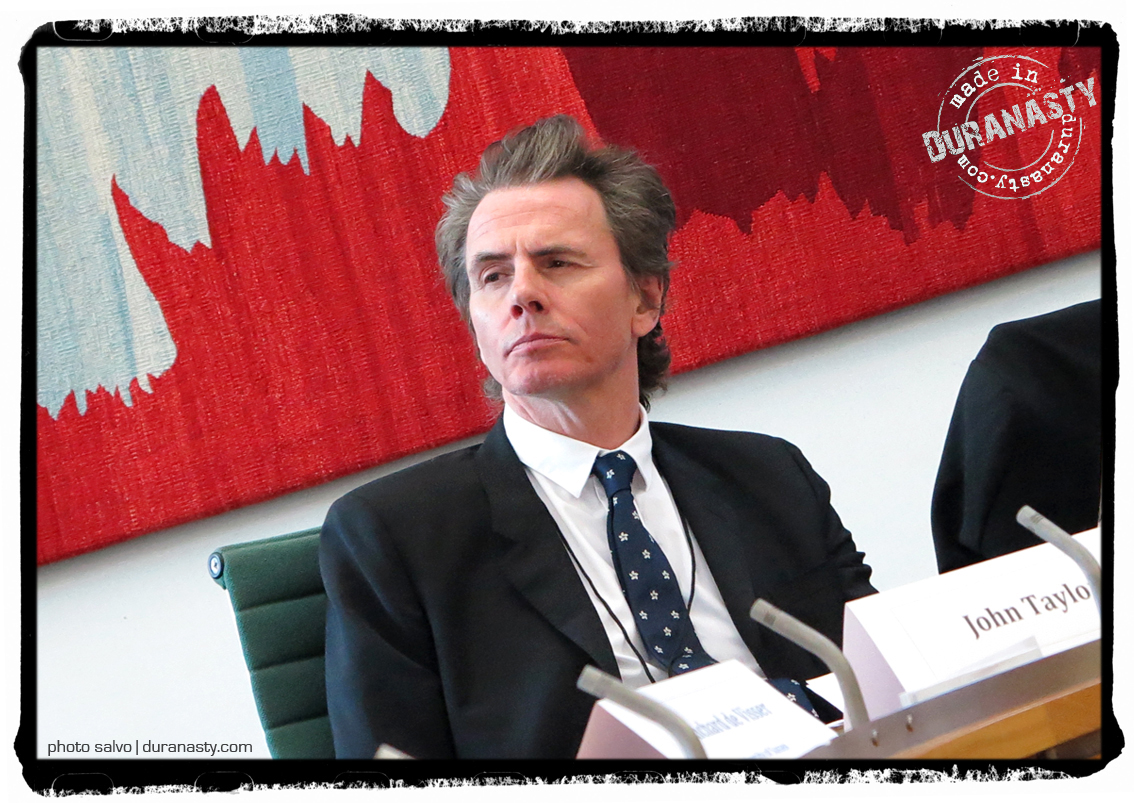
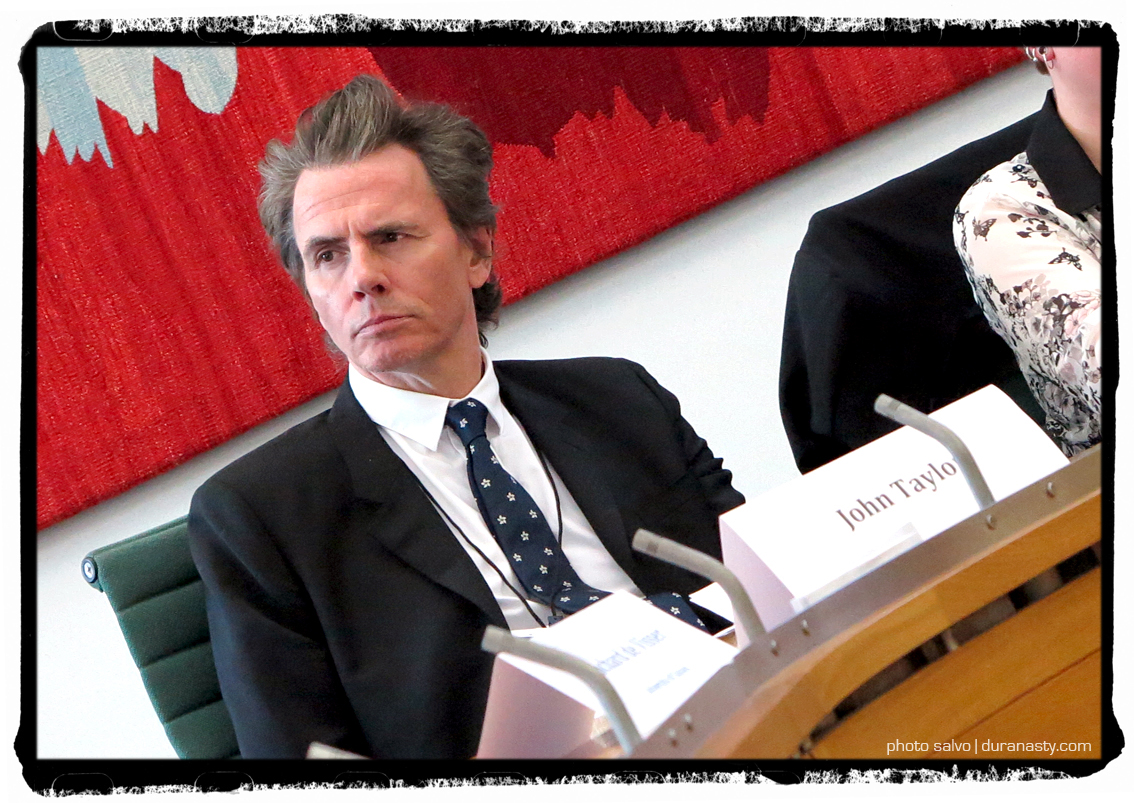

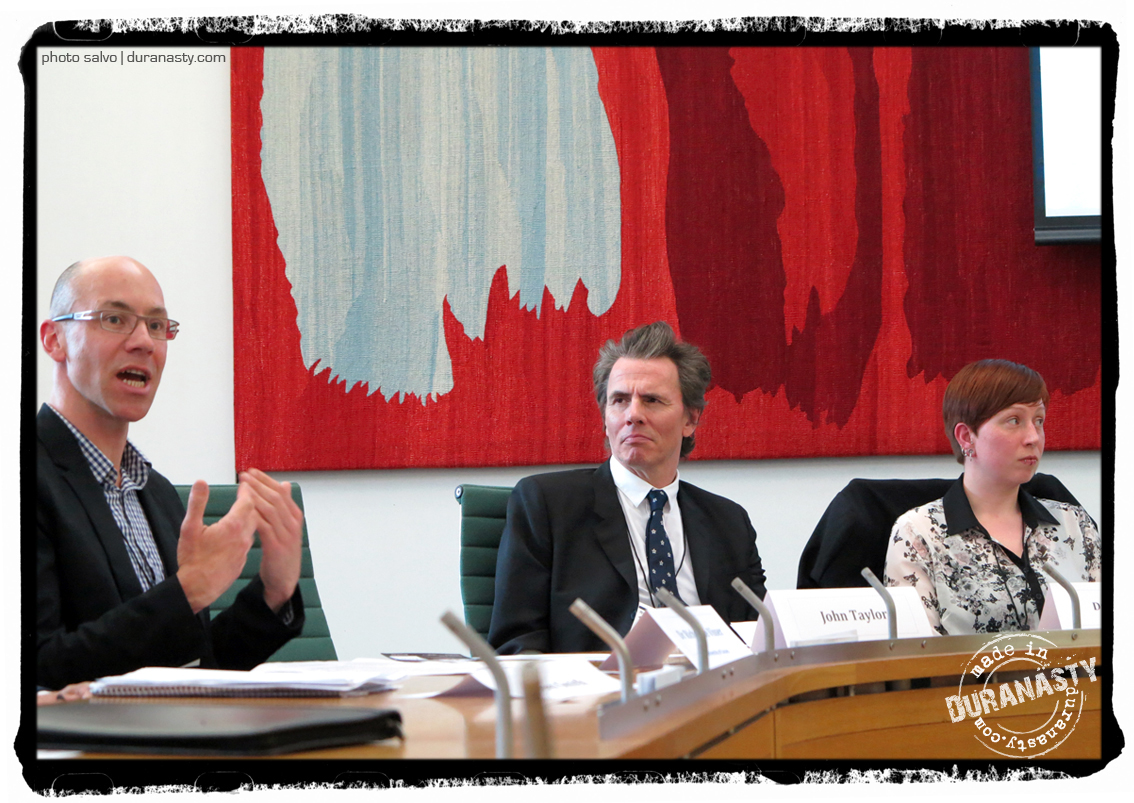
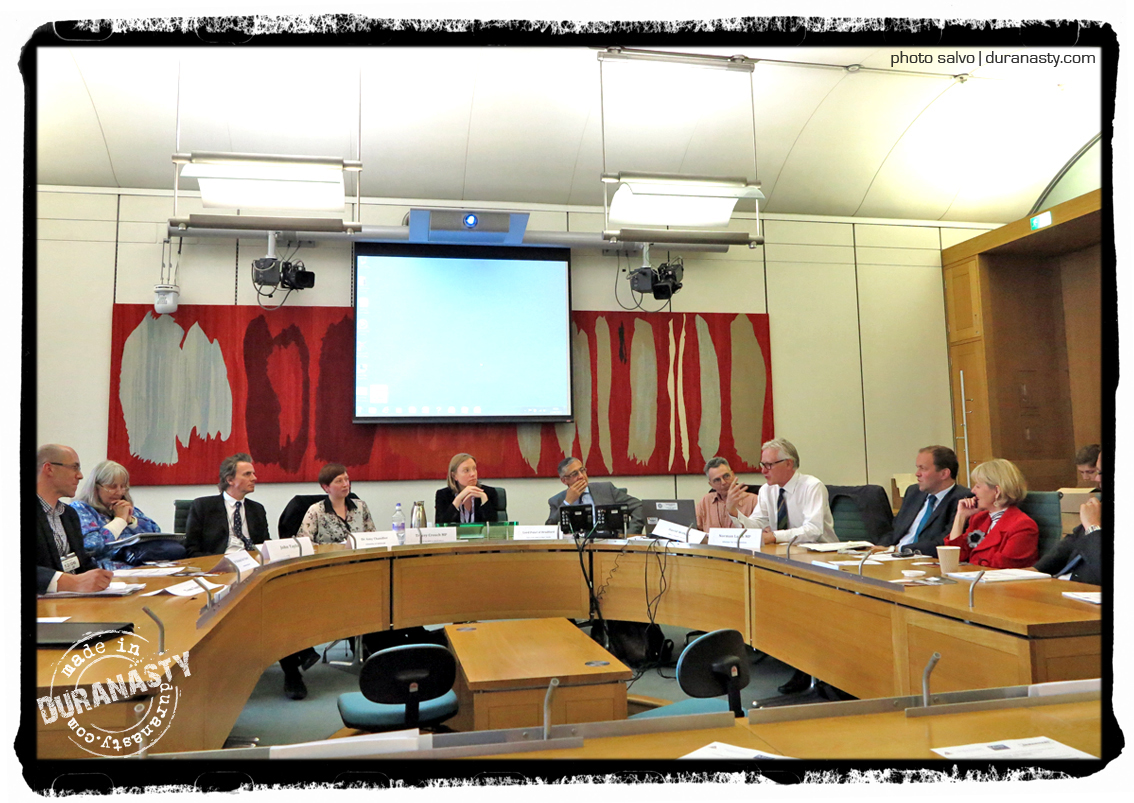
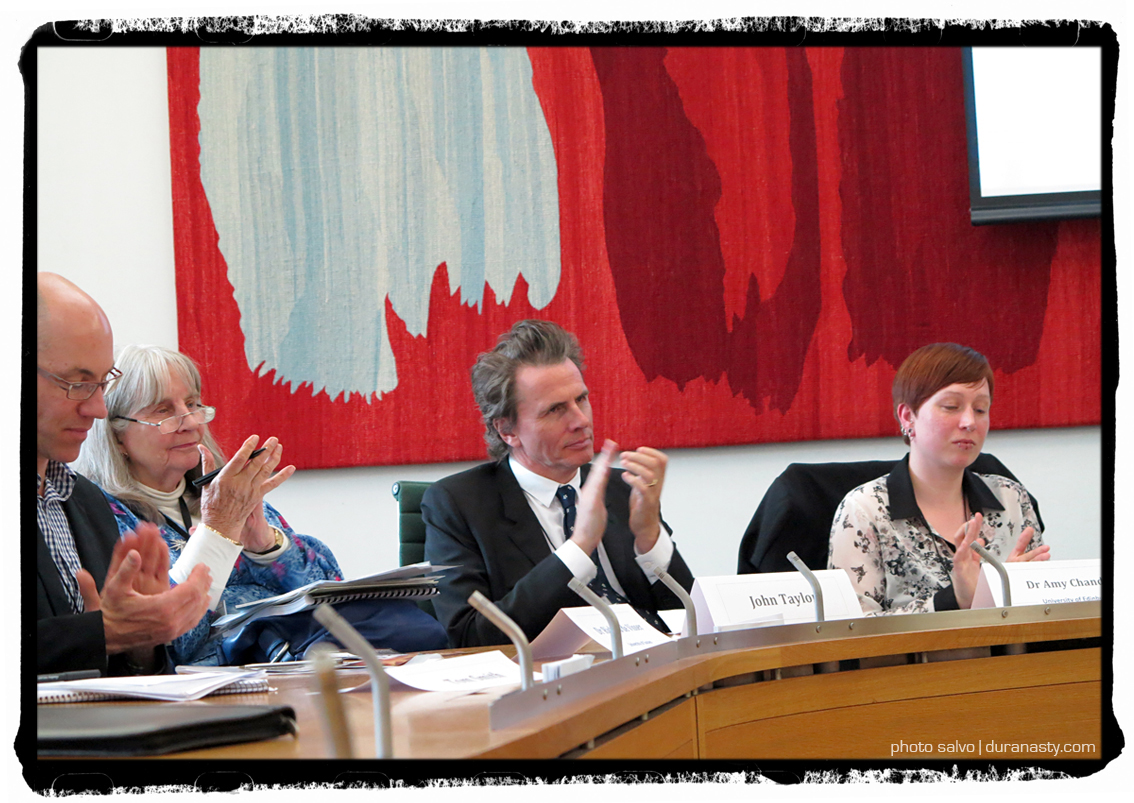
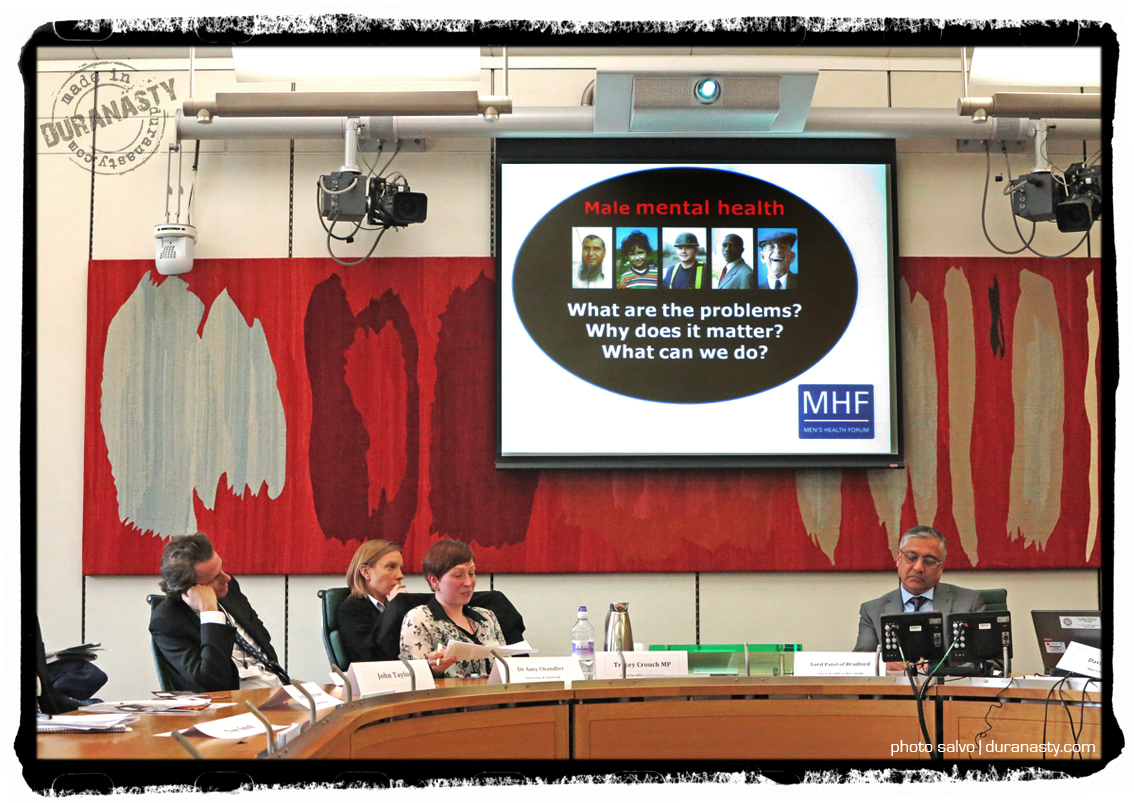
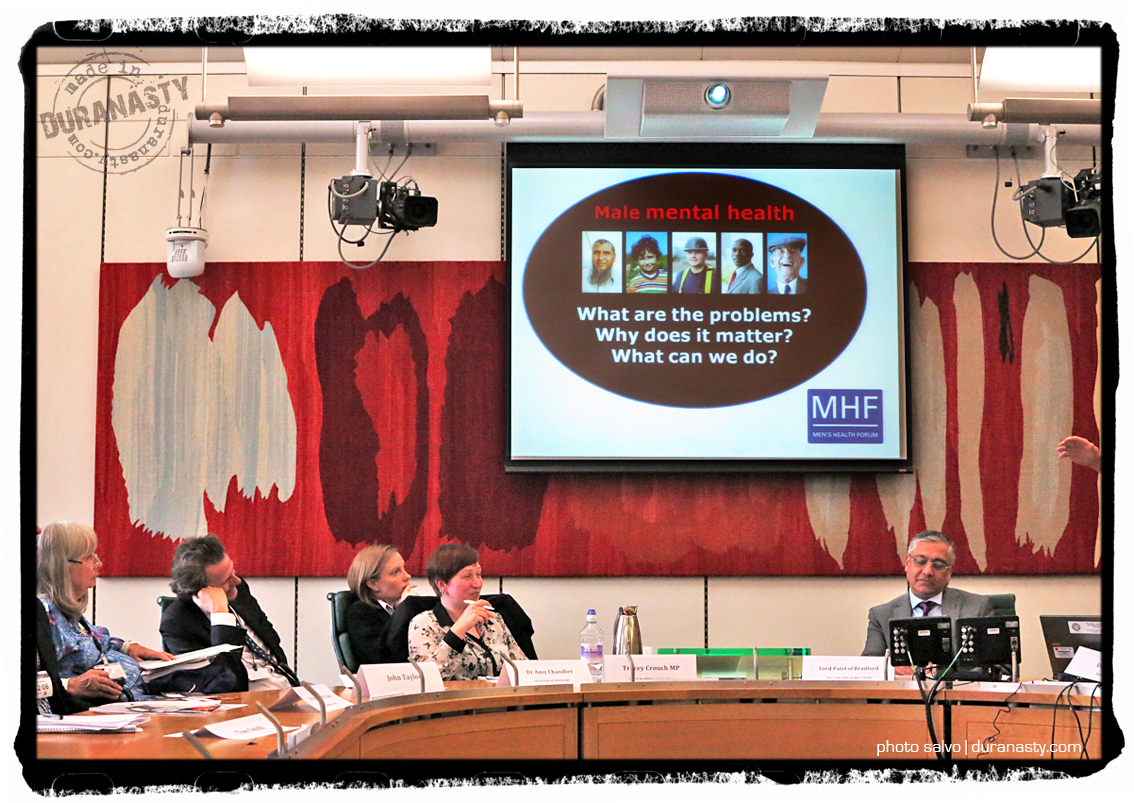
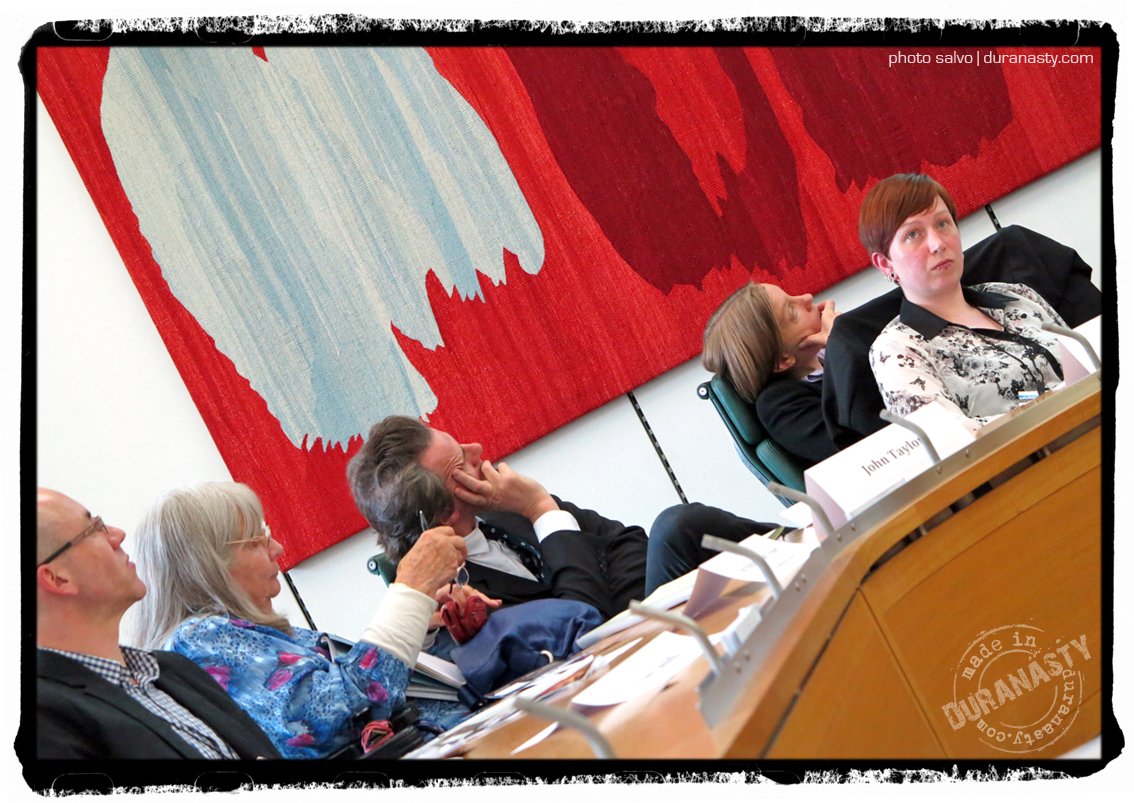
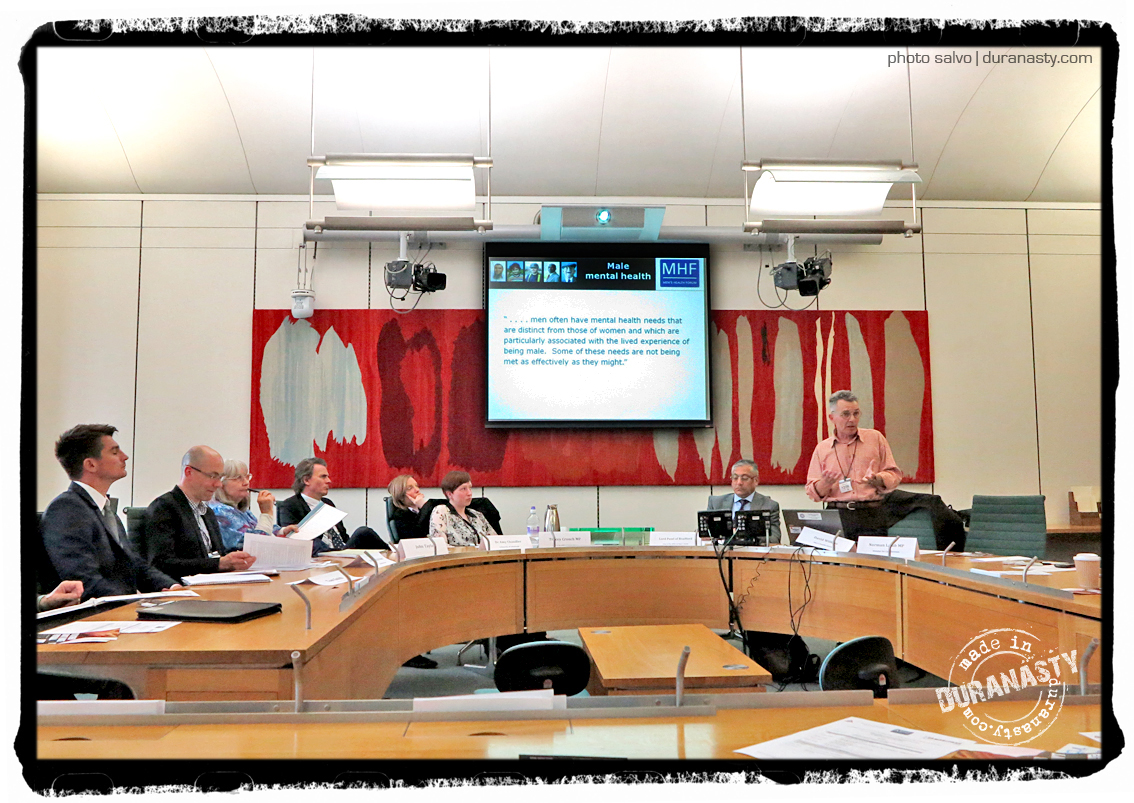
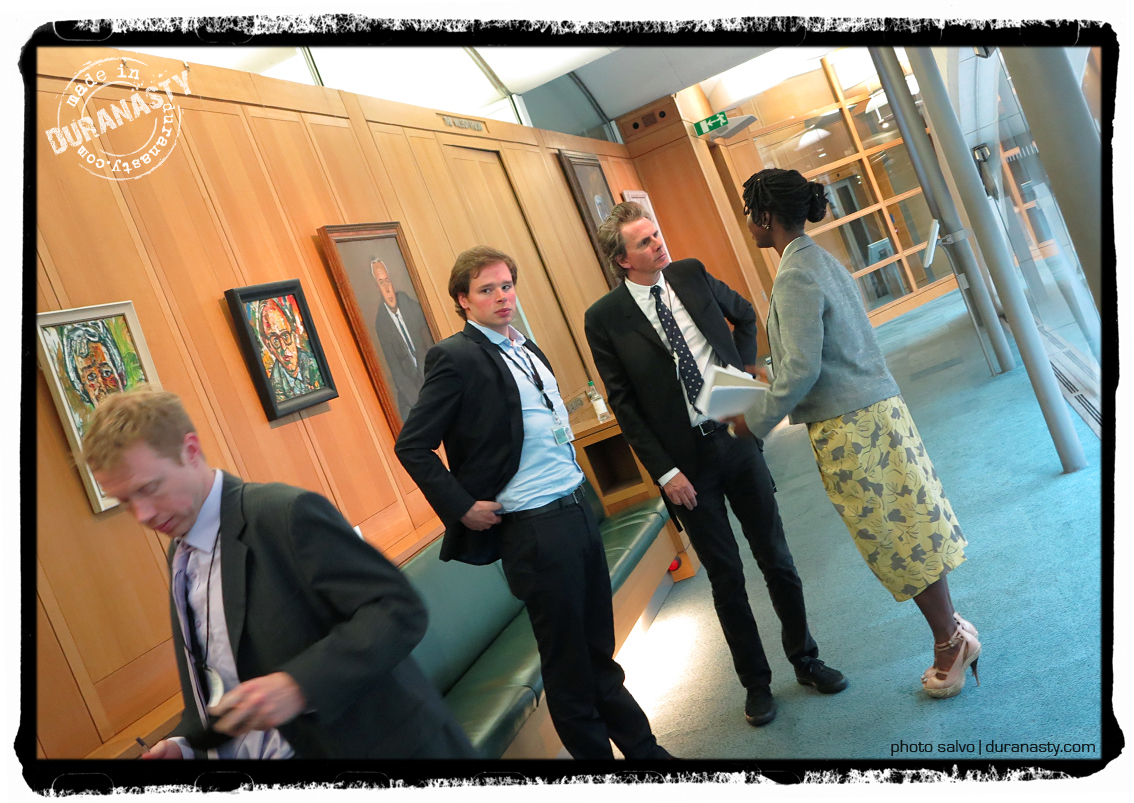
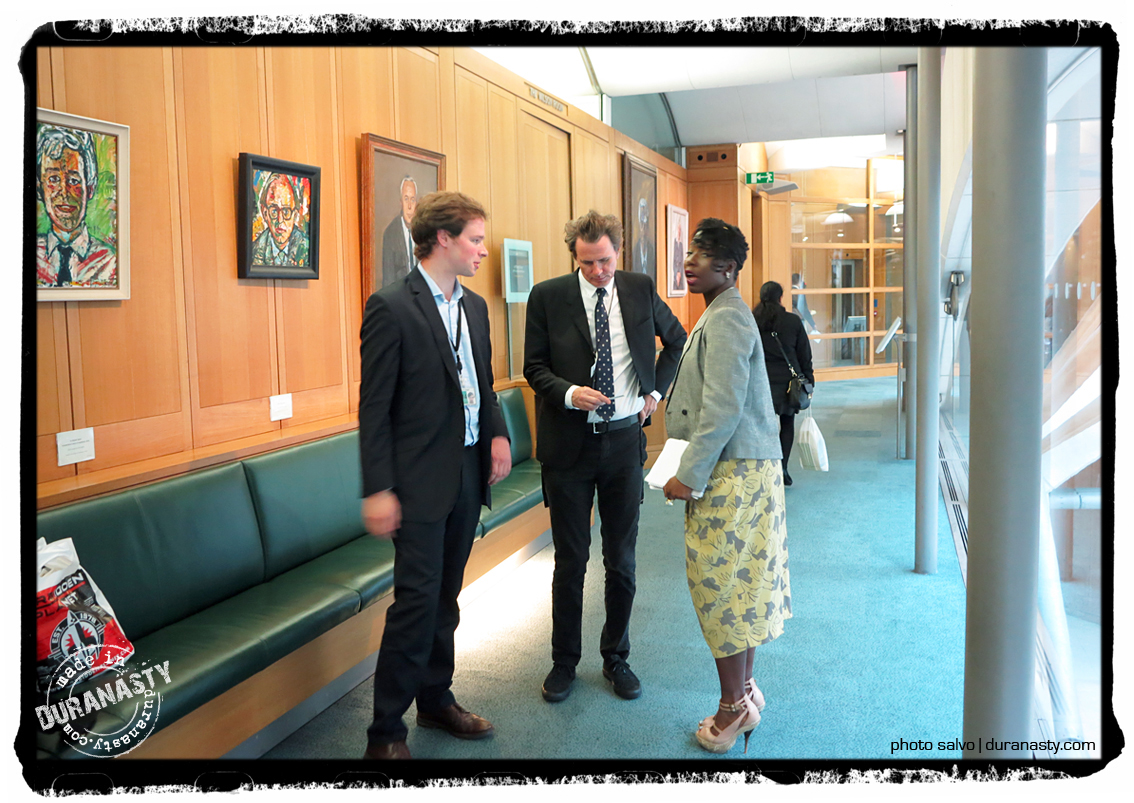
|
The
only aim of this webzine is to celebrate Duran Duran
and their members. This is a non-profit activity and
there are not commercial purposes behind the existence
of the site. This webzine is just a positive place
to share love, passion, stories, news and pics among
Duran Duran fans. Any Duran Duran fan is welcomed
to submit reports, news, pics, etc.
www.duranasty.com
is a fan-site made with passion from a fan to all
the fans of Duran Duran on Planet Earth.
contact
the editor and webmaster salvo@duranasty.com | the
life and times of D u r a n a s t y ® All rights reserved
Thank
you Duran Duran for being a daily source of inspiration
with your art
Special
thanks to John Taylor
|
|

|